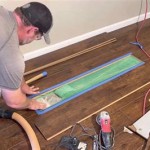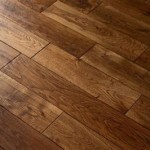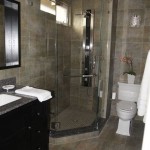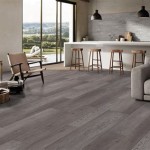How Much Does It Cost To Replace Flooring In Bathroom?
Replacing bathroom flooring is a common home improvement project that can significantly enhance the aesthetics, functionality, and even the value of a property. However, understanding the expenses involved is crucial for budgeting and informed decision-making. The cost of replacing bathroom flooring varies depending on a multitude of factors, including the type of flooring material selected, the size of the bathroom, the complexity of the installation, and regional labor rates.
This article provides a comprehensive overview of the various factors that contribute to the overall cost of replacing bathroom flooring, offering a detailed breakdown of the materials, labor, and potential hidden expenses. It aims to equip homeowners with the necessary knowledge to estimate the cost of their bathroom flooring project accurately.
Factors Influencing Bathroom Flooring Replacement Costs
Several key factors influence the final cost of replacing bathroom flooring. Understanding these elements allows for a more precise estimation and helps homeowners make informed choices regarding materials and installation.
Type of Flooring Material: The material chosen for the bathroom floor is the most significant cost driver. Different materials have vastly different price points, reflecting their durability, water resistance, aesthetic appeal, and installation complexity. For example, vinyl flooring is generally the most affordable option, while natural stone tiles tend to be the most expensive.
Bathroom Size: The square footage of the bathroom directly impacts the amount of material needed, thereby affecting the overall cost. Larger bathrooms require more flooring, increasing both material and labor expenses. Smaller bathrooms, while requiring less material, might still incur similar labor costs due to the minimum charges often applied by contractors.
Complexity of Installation: The complexity of the installation process can significantly influence labor costs. Bathrooms with intricate layouts, such as those with numerous corners, curved walls, or built-in fixtures, require more time and skill to install flooring properly. Additionally, if the existing subfloor is uneven or damaged, it may need to be repaired or replaced, adding to the overall cost.
Labor Costs: Labor costs vary significantly based on location and the experience level of the installer. Areas with a higher cost of living typically have higher labor rates. Hiring a licensed and insured contractor generally costs more than hiring a handyman, but it also provides greater assurance of quality workmanship and adherence to building codes.
Subfloor Preparation: The condition of the subfloor beneath the existing flooring plays a critical role in the overall cost. If the subfloor is damaged, uneven, or contains mold, it must be repaired or replaced before the new flooring can be installed. This can involve patching holes, leveling the surface, or replacing entire sections of the subfloor, adding both material and labor costs.
Removal and Disposal of Existing Flooring: The process of removing and disposing of the old flooring can also contribute to the overall cost. Some contractors include this service in their initial quote, while others charge it as a separate fee. The ease of removal depends on the type of existing flooring and the method used to install it. For instance, removing old ceramic tile can be more labor-intensive than removing sheet vinyl.
Detailed Cost Breakdown of Flooring Materials
The choice of flooring material is paramount when determining the overall cost. Here's a detailed look at some common bathroom flooring options and their associated costs per square foot:
Vinyl Flooring: Vinyl is a popular and cost-effective option for bathroom flooring due to its water resistance, durability, and ease of installation. Sheet vinyl typically costs between $2 to $5 per square foot for the material alone. Luxury vinyl tile (LVT) and luxury vinyl plank (LVP) offer a more upscale look and feel, with material costs ranging from $3 to $7 per square foot. Installation costs for vinyl flooring generally range from $1 to $4 per square foot.
Ceramic Tile: Ceramic tile is another popular choice for bathrooms due to its durability, water resistance, and wide variety of styles and colors. The material cost for ceramic tile ranges from $3 to $8 per square foot. Installation costs are typically higher than vinyl, ranging from $4 to $10 per square foot due to the more labor-intensive installation process.
Porcelain Tile: Porcelain tile is similar to ceramic tile but is denser and more water-resistant, making it an excellent choice for bathrooms. Porcelain tile tends to be slightly more expensive than ceramic tile, with material costs ranging from $5 to $12 per square foot. Installation costs are comparable to ceramic tile, ranging from $4 to $10 per square foot.
Natural Stone Tile: Natural stone tiles, such as granite, marble, and slate, offer a luxurious and sophisticated look for bathrooms. However, they are also the most expensive flooring option. Material costs for natural stone tiles can range from $8 to $30 or more per square foot, depending on the type and quality of the stone. Installation costs are also higher, typically ranging from $6 to $15 per square foot, due to the precision and care required for proper installation.
Laminate Flooring: While not as water-resistant as other options, laminate flooring can be used in bathrooms if properly installed and maintained. It offers a cost-effective alternative to hardwood, with material costs ranging from $2 to $5 per square foot. However, it's crucial to choose a water-resistant laminate specifically designed for bathroom use. Installation costs are generally between $2 and $5 per square foot.
Engineered Wood Flooring: Engineered wood flooring consists of a thin layer of hardwood veneer bonded to a plywood or fiberboard core. It is more water-resistant than solid hardwood but still requires careful maintenance in bathrooms. Material costs range from $4 to $10 per square foot, and installation costs typically fall between $3 and $7 per square foot.
Additional Costs to Consider
In addition to the cost of materials and labor, several other potential expenses can impact the overall cost of replacing bathroom flooring.
Subfloor Repair or Replacement: As mentioned previously, the condition of the subfloor is crucial. Repairing minor damage can cost between $50 and $200, while replacing an entire subfloor can range from $300 to $1,000 or more, depending on the size of the bathroom and the extent of the damage.
Mold Remediation: If mold is present in the bathroom, it must be professionally removed before any flooring work can begin. Mold remediation costs can vary widely depending on the severity of the problem, ranging from a few hundred dollars to several thousand dollars.
Toilet Removal and Reinstallation: Removing and reinstalling the toilet is often necessary when replacing bathroom flooring. Plumbers typically charge between $100 and $300 for this service.
Baseboard and Trim Replacement: Removing and replacing baseboards and trim can add to the overall cost. The cost depends on the type of trim and the size of the bathroom, but it typically ranges from $50 to $200.
Permits: Depending on the local building codes, a permit may be required for flooring replacement. Permit fees vary by municipality but can range from $50 to $200.
Unexpected Issues: It's always wise to budget for unforeseen problems that may arise during the project. This could include plumbing issues, electrical issues, or additional subfloor repairs. A contingency fund of 10% to 20% of the total project cost is recommended.
To provide a more concrete estimate, let's examine a hypothetical scenario: a standard 5ft x 8ft bathroom (40 square feet). We'll consider three different flooring options: vinyl, ceramic tile, and natural stone.
Vinyl Flooring:
- Material cost: $4/sq ft x 40 sq ft = $160
- Installation cost: $2/sq ft x 40 sq ft = $80
- Toilet removal and reinstallation: $150
- Subtotal: $390
- Contingency (10%): $39
- Estimated total cost: $429
Ceramic Tile:
- Material cost: $6/sq ft x 40 sq ft = $240
- Installation cost: $7/sq ft x 40 sq ft = $280
- Toilet removal and reinstallation: $150
- Subtotal: $670
- Contingency (10%): $67
- Estimated total cost: $737
Natural Stone Tile:
- Material cost: $15/sq ft x 40 sq ft = $600
- Installation cost: $10/sq ft x 40 sq ft = $400
- Toilet removal and reinstallation: $150
- Subtotal: $1150
- Contingency (10%): $115
- Estimated total cost: $1265
These estimates are for illustrative purposes only, and the actual cost may vary depending on the specific factors outlined above. It is always recommended to obtain multiple quotes from reputable contractors to get a more accurate estimate for your specific project.

Fixr Com Floor Replacement Cost To Refloor A House

Fixr Com Floor Repair Cost Sagging

Fixr Com Floor Replacement Cost To Refloor A House

Fixr Com Floor Replacement Cost To Refloor A House

Cost To Remove Hardwood Floors Mk Remodeling

How Much Does Flooring Installation Cost 2024 Guide

Fixr Com Subfloor Replacement Cost S

Floor Repair Cost Sagging Joists And Floorboards Forbes Home

How Much Does It Cost To Install Bathroom Flooring Homes Gardens

How Much Does Tile Installation Cost 2024 Guide Modernize
See Also






